An estimated 5 million unwanted pets are brought to the nation’s animal shelters every year and more than half of these pets will never be adopted. 60% of all dogs that arrive at a shelter do not find homes. For this reason, we highly encourage you to look to the shelters to find your next companion.
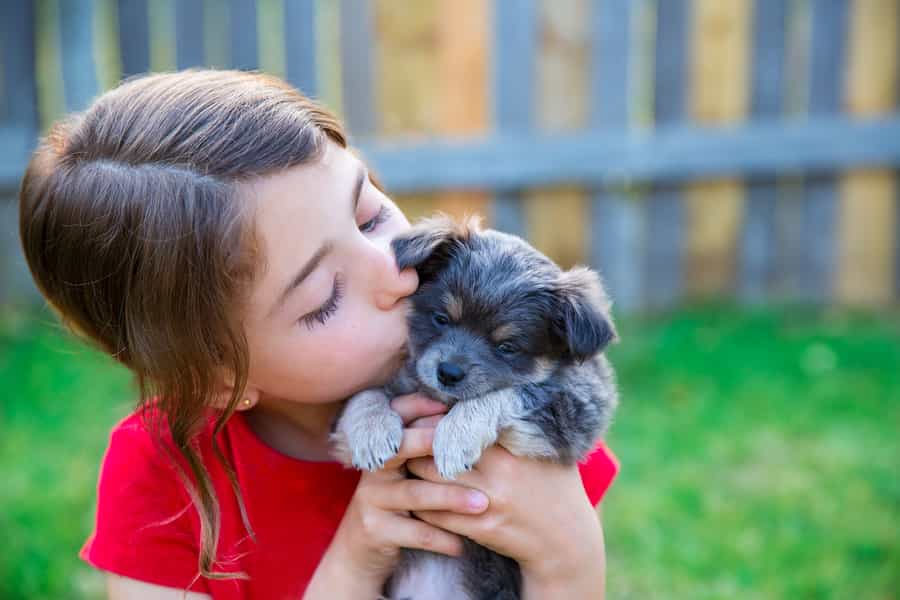
How To Pick a Puppy
The first thing to consider is the puppy’s health and personality. Observe how the puppy interacts with people and other puppies. Notice whether the puppy seems aggressive or friendly. While puppies can be trained, you may not be able to correct some behavioral problems. Puppies that seem well adjusted will be well adjusted as adults.You should also assess the health of the puppy. Check her gait, vision, coat, genitals, and vision for abnormalities. This is not to say that you should not adopt a puppy with health or personality issues. However, you should understand that these puppies may require a little bit of extra care and patience.
Size does matter and puppies do not remain small forever. It’s important to research the breed you are considering and find out how much space is necessary. If you live in a small space and plan to live there for a long period of time, you may want to adopt a smaller breed.
Adoptions Save Lives
Learn About the Best Friends Animal Society
Best Friends Animal Society is not a sponsor of CaringPets.Org
Preparing For Puppies Arrival
Being prepared before bringing a puppy home is the best way to make getting a new family member easy. The first thing you need to do is make a list of everything that the puppy needs.
You need to make sure to buy the following:
Assess the area that your new puppy will be living in. It is important to puppy-proof your home for the safety of the puppy. Install gates to keep your puppy in certain areas of the home. Make sure the areas she can access do not have any electrical cords, plants or other that can pose a danger to the dog.
Remember that both you and your puppy are going through an adjustment period. To make it easier for the puppy to adjust, ask about the food she was fed and how often she ate. Knowing these facts will prevent any type of distress to the puppy’s intestinal system. If you are going to change brands of dog food, do it gradually.
For homes with children, you should discuss proper care techniques and how to handle a puppy. Make a list of puppy care chores that need to be done. The family should meet and discuss any rules about the puppy before bringing her home.
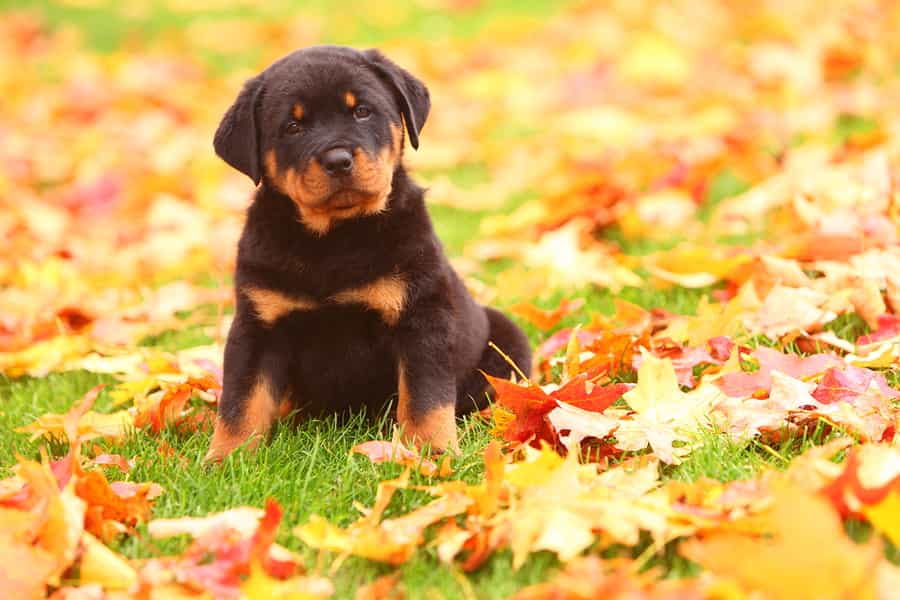

Further Reading:
Going to the Dog Park
Separation Anxiety
Meaning of Dog Behaviors
Puppy Health Issues
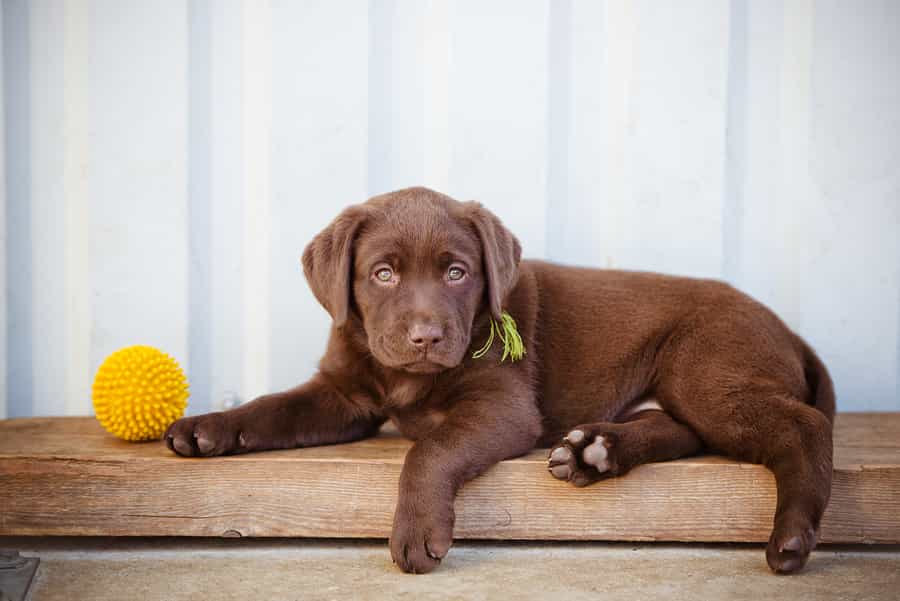

Bringing the Puppy Home
Getting a new puppy is exciting. As much as you and your family may want to play with her, she will need some time to adjust to her new surroundings. This is a stressful situation for her. The puppy has left familiar surroundings and litter for an unknown environment. Your dog should get a lot of attention from you and your kids. However, do this in a manner that is not frightening.
When you bring her home, try to spend the first couple of days at home. This will help the dog feel less lonely. Another benefit of being around your puppy for the first couple
Having a Baby When You Own a Dog
There are other considerations about bringing a puppy home. If your family plans on having a child, as in having a baby, you may run into some issues with the two coexisting. If this happens during the puppy phase, you might have to be vigilant and cautious when the puppy and baby are in the same room. Some puppies will follow your lead while others may want to play with the baby like a toy or are just too eager to meet your new member of the family. This can be is incredibly dangerous for a baby. Common sense will tell you to always supervise and lead these interactions. If you train a puppy early on, it has a much better chance of seeing the baby as something to be gentle with and as a new member of your pack.
Even when a puppy or dog does accepts the new baby as one of the pack; sometimes they can interpret certain baby behaviors the wrong way. Babies and especially small children will reach, grab, pull, and slap at objects within their reach. A dog can be caught off guard by this and could react in any number of ways. There is a chance nothing happens if a baby pulls on a puppy’s floppy ears or tugs on its tail but there’s also a chance it can go into play mode and nip back or worse, it can become annoying and bite back. For this reason, again, around-the-clock supervision is a must.
The last thing to be aware of in respect to a new baby dog relationship is that if the baby comes along after your dog has already lived in your household for a good deal of time, there’s a chance your dog will have issues adjusting to this new twist. This is especially possible if your family doesn’t currently have any children or dependents in the home. Dogs can become depressed, anxious or even lash out if it can’t adjust to sharing time with a newborn. You just never know how a dog will react but just be aware of this possibility and make sure to observe your dog’s behaviors.
If you find your puppy or dog can’t adjust or if you find you just can no longer provide it with the time and attention it needs, it’s okay to consider finding a new home for it. It’s a very hard decision to make but if you find the right home, you can still take comfort in knowing your beloved dog will be loved by its new family. Read an actual account of this on the parenting blog dadsigner.com.
Further Reading:
Pet Care Advice for Parents
Caring for Popular Breeds
How to Train a Puppy
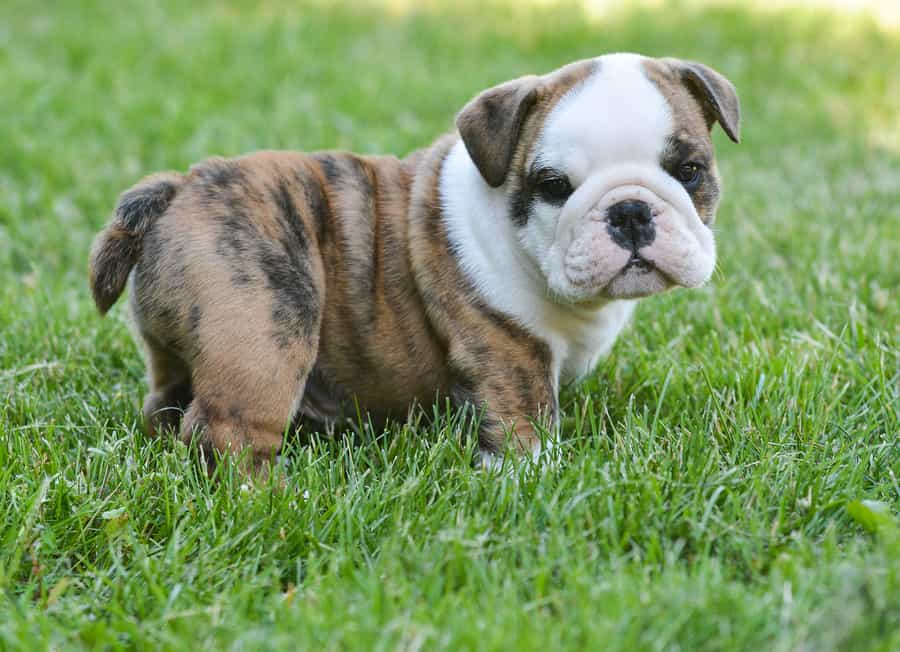

Feeding Your Puppy
It is important that she gets the right amount of nutrients. Puppies should eat three meals a day. Try to feed her at 7 a.m., noon, and 5 p.m. Keep the puppy on this schedule until she is 14 to 18 weeks old. Try to stick to the 5 p.m. dinnertime. Doing this will give the puppy enough time to go to the bathroom before bedtime. When the puppy reaches 18 months, mealtime should be reduced to twice a day.
Feed your puppy a well-balanced diet and quality food. The food should be high in fat, phosphorus, and calcium. Because a puppy needs more nutrients, the food should be formulated for a puppy. You need to purchase food that is meant for your dog’s breed. Breed-specific dog food is designed to meet that particular dog’s nutritional needs.
Do not overfeed your puppy. This will help to prevent weight-related health issues. Research the amount of food your puppy’s breed should eat. Your veterinarian is another source of information on the amount and type of food that is good for your puppy.
Playtime
Playtime is very important to your puppy, it helps with relationship development. It also encourages social interaction and communication with your puppy. Playtime is not only fun, it can also impact how easily the puppy is trained as to when she gets older. For this interaction to be successful and meaningful, you need to keep her focused and engaged.
You need to play with your puppy for at least one hour a day. Just like people, puppies can get bored. Every so often, change the type of toys and activities you engage in with your dog. Dogs that become bored may start to destroy items around your house.
Aggressive play is something you need to monitor in your puppy. There are several ways you can correct this behavior. Change toys if the aggressive behavior is directed towards a certain toy. Let your puppy know you do not approve of her behavior. Use a water-filled squirt bottle to correct the behavior. Do not physically harm your puppy or induce fear as a form of punishment.
Grooming Tips
Bathing puppies helps to prevent odor and the development of skin infections. It also removes bacteria, oil, and pet dander. To prevent the drying out of the coat and skin, use a shampoo that is for dogs. You should only let your puppy air dry if the air in the room is at room temperature. When blow dryers are used, the temperature should be set to the lowest setting.
Puppies enjoy being brushed. Brushing removes loose fur, stimulates the skin’s oil glands, and helps keep the coat clean. Some breeds require more grooming than others. The ideal brushes to use are the ones that have soft bristles on one side and metal pins on the other.
Nail trimming is an important aspect of grooming. It prevents the nails from harming the puppy, you, and your items in your home. Because they are so active, you will probably only need to have a puppy’s nails trimmed every four to six weeks.
Bed Time
The first night your puppy comes home, you may want to place her near your bed. This will help her feel less lonely. If you are crate training, calm her before putting her in a crate. Placing a familiar toy in a crate will help to prevent anxiety. It is important that bedtime does not become a stressful moment for your puppy.
Creating and sticking to a bedtime routine will also help. The routine should start around the same time each day. Take her for a walk or engage in some type of activity before putting her to bed. Take your puppy to the bathroom before bedtime to prevent accidents.
Not every puppy will go to bed easily. It may take a little time for her to become familiar and comfortable with her surroundings. Buying a comfortable bed can help. You may want to consider placing a clock in her crate or near her bed. It is not uncommon for puppies to cry at night. Sad puppies are hard to ignore, but responding to them will only reinforce the behavior.
With all that said, dogs do sleep 12-14 hours of the 24 hour cycle.
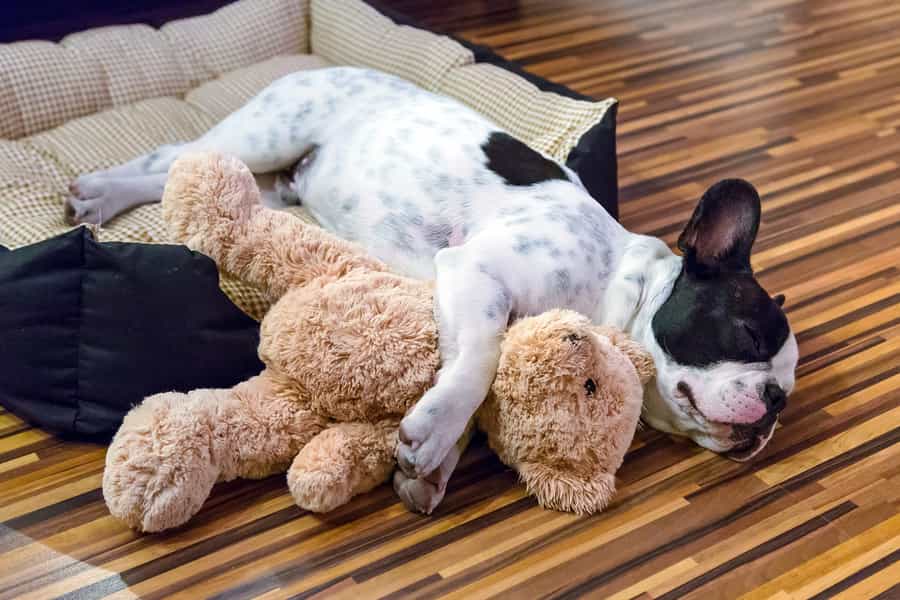

Potty Training Advice
House training your puppy is not easy. It takes patience, positive reinforcement and consistency. You can expect the process to take four months to a year. Factors that will affect the process include:
- Type of breed
- How much time they spend outside
- Living conditions.
You should start training your puppy when she is between 12 and 16 weeks old. It is around this age when they start to have control over their bowel movements and bladder. You should start potty training by confining your puppy to a specific space. Over the course of the training process, you can expand their range within the home.
Staying on a schedule is key to potty training. You should keep the puppy on their feeding schedule. Make is a point to let the dog out early in the morning and once every hour. She should also be walked after each meal and when she wakes up from a nap. Praise her every time she goes to the bathroom in the right spot.
Accidents are expected. When your puppy is caught using the bathroom on the floor, a loud clap will tell her she has done something wrong. Clean the area with an enzymatic cleaner to remove the odor that may lead to her have future accidents.
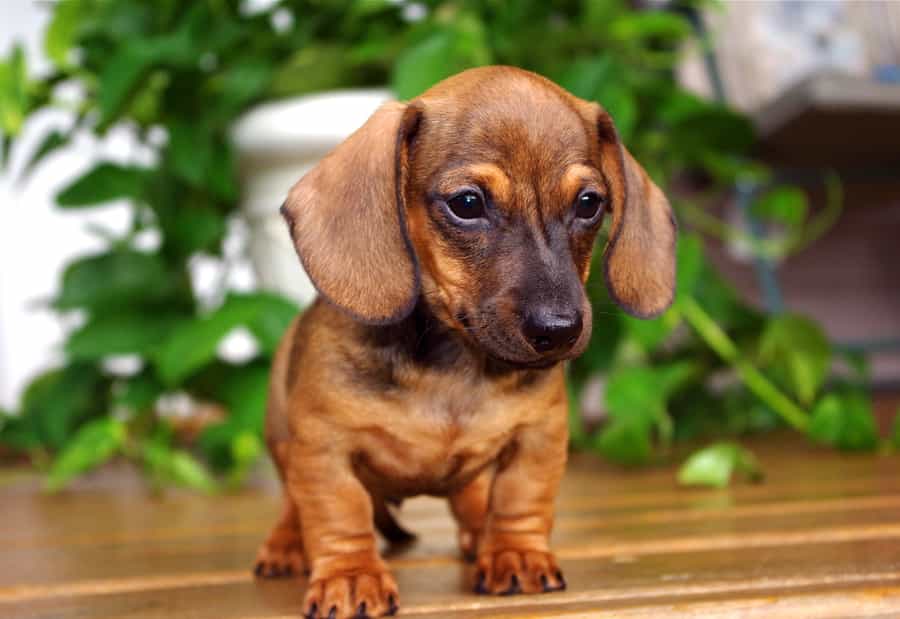

Health and Vet Care
The first vet visit should occur within a week of getting your new puppy. During this visit, the vet will physically examine the puppy to make sure there are no internal and external health issues. It is important to bring any of your puppy’s health records from the breeder or shelter with you to this visit.Your vet will also talk to you about your puppy’s vaccination schedule. The first vaccinations occur when your dog is six to eight weeks old. Common vaccines that are included in the schedule include rabies, distemper, parvovirus, and hepatitis.
Outside of the regular, yearly visit, you should take your puppy to the vet when notice your puppy displaying runny eyes and nose, fever, lethargy, vomiting, and diarrhea. These symptoms could be a sign of serious illness in puppies.
Further Reading:
Who Gets Pet Insurance?
Prevent & Stop Dog Fights
Frequently Asked Questions About Dogs
What Plants Are Toxic to Dogs?
External Resources:
www.akc.org
www.cesarsway.com
www.rspca.org.uk
www.vetwest.com.au
www.aspca.org
Reviewed By: Tim Winter


Tim Winter has a strong affection for pets and wildlife. His years of experience caring for various types of pets has led him to share his knowledge with others on the best practices in pet care. Tim holds a Bachelor of Science from the University of Oregon School of Journalism and Communications.
More About Dog Care
Canine Companions: How Electric Dog Collars Can Improve Your Dog’s Behavior Safely
In the search for well-behaved canine companions, dog owners are often faced with a myriad of training tools and techniques. Among these, electric dog collars have sparked considerable debate. These devices, which include vibrating dog collars and shock collars, are touted by some as effective means of behavior modification, while others raise concerns about their ... Read more
Unveiling The Benefits of Dog Daycare And Boarding Services
There has been a huge rise in recent years of alternative ways to care for your puppy while you’re working or if you need to go out of town. While older boarding facilities were generally boring and just a place to keep the puppy if no one could watch them, there are now outstanding services ... Read more
The miracle bully stick dog treat. What are the actual nutritional benefits?
Spoiler. VERY few science articles or accurate consumer blogs have provided the answer to this. Instead university’s seem to be more interested In being financially rewarded in discrediting natural dog treats and food, because the is a much larger margins to be made by billion dollar companies on composite grain based treats. HOWEVER, knowing what ... Read more
A guide to superior dog accessories
In the realm of pet care, selecting the right accessories for our furry friends is a crucial aspect of their health and happiness. Hundstaff.se emerges as a beacon of innovation in this space, offering a range of handcrafted, Swedish-designed dog accessories that prioritize safety, comfort, and style. This blog delves into why Hundstaff.se’s offerings are ... Read more

Caring for a puppy is a big responsibility, but it’s also one of the most rewarding experiences you can have. This blog post provides great tips on how to keep your furry friend healthy and happy. I also highly recommend checking out this Post to learn more about the importance of positive reinforcement in puppy training.
i love puppies
This is some helpful information. We just adopted a puppy dog from an animal shelter on an impulse. We have wanted one for a while but just never followed through. Our little pup picked us and so had to take her home. Now to ensure she is happy and stays healthy. We got a lot of good information from the adoption center but still had some questions. This guide is great. Thanks. Stella thanks you too 🙂